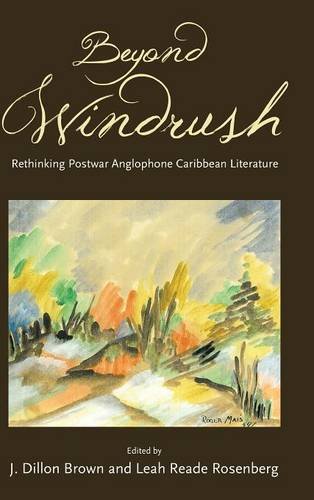Beyond Windrush: Rethinking Postwar Anglophone Caribbean LiteraturePosted in Anthologies, Books, Caribbean/Latin America, Literary/Artistic Criticism, Media Archive on 2015-08-02 15:13Z by Steven |
Beyond Windrush: Rethinking Postwar Anglophone Caribbean Literature
University Press of Mississippi
2015-07-10
234 pages
1 b&w illustration, 3 maps, introduction, epilogue, index
6 x 9 inches
Hardcover ISBN:9781628464757
Edited by:
Dillon Brown, Associate Professor of English and African and African American
Washington University, St. Louis, Missouri
Leah Reade Rosenberg, Associate Professor of English
University of Florida
A challenge to the primacy of the Windrush generation as the sole founders of Caribbean literature
Contributors: Edward Baugh, Michael Bucknor, Raphael Dalleo, Alison Donnell, Nadia Ellis, Donette Francis, Glyne Griffith, Kate Houlden, Evelyn O’Callaghan, Lisa Outar, Atreyee Phukan, Kim Robinson-Walcott, Faith Smith, and Michelle Stephens
This edited collection challenges a long sacrosanct paradigm. Since the establishment of Caribbean literary studies, scholars have exalted an elite cohort of émigré novelists based in postwar London, a group often referred to as “the Windrush writers” in tribute to the SS Empire Windrush, whose 1948 voyage from Jamaica inaugurated large-scale Caribbean migration to London. In critical accounts this group is typically reduced to the canonical troika of V. S. Naipaul, George Lamming, and Sam Selvon, effectively treating these three authors as the tradition’s founding fathers. These “founders” have been properly celebrated for producing a complex, anticolonial, nationalist literature. However, their canonization has obscured the great diversity of postwar Caribbean writers, producing an enduring but narrow definition of West Indian literature.
Beyond Windrush stands out as the first book to reexamine and redefine the writing of this crucial era. Its fourteen original essays make clear that in the 1950s there was already a wide spectrum of West Indian men and women—Afro-Caribbean, Indo-Caribbean, and white-creole—who were writing, publishing, and even painting. Many lived in the Caribbean and North America, rather than London. Moreover, these writers addressed subjects overlooked in the more conventionally conceived canon, including topics such as queer sexuality and the environment. This collection offers new readings of canonical authors (Lamming, Roger Mais, and Andrew Salkey); hitherto marginalized authors (Ismith Khan, Elma Napier, and John Hearne); and commonly ignored genres (memoir, short stories, and journalism).
